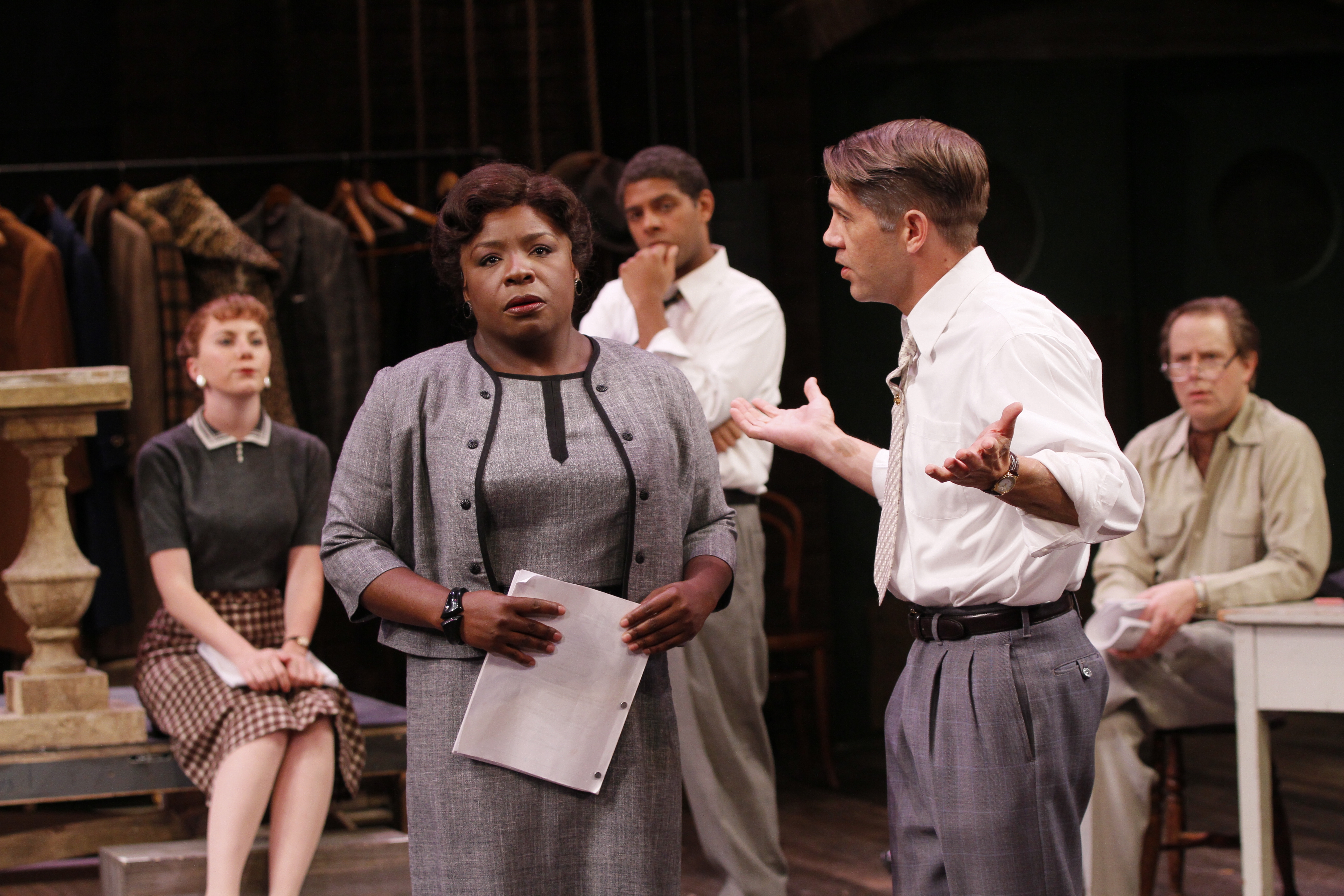Trouble in Mind
Cornish Playhouse at Seattle Center, 201 Mercer St., 726-5190. $20–$50. Schedule varies; see intiman.org. Ends Sept. 15.
Few theatergoers today have heard of Alice Childress (1916–1994), the author of A Hero Ain’t Nothin’ but a Sandwich, but she was also a playwright who won an Obie for her 1955 Trouble in Mind. Plans for a transfer to Broadway didn’t work out, perhaps because white producers didn’t like her depiction of their world. Now director Valerie Curtis-Newton is determined to redress Childress’ relative obscurity. Skillfully, movingly, entertainingly, shatteringly, Trouble catalogs the charades and compromises (i.e., sellings-out) demanded of “negro” stage professionals trying to make it on Broadway. Intiman’s splendid rendering marries beautiful acting to the powerful architecture of a masterly, laser-sharp script that ricochets between hope and heartache.
Thinking she has finally cleared the hurdle between mammy roles and real acting, Wiletta Mayer arrives for her first day of Broadway rehearsal looking and feeling like a million bucks. Tracy Michelle Hughes nails Wiletta’s complex mix of intelligence, ambition, and impending dread as the destructively narrow vision of producer/director Al Manners (Tim Gouran) falls like toxic rain over his talented cast. Much mordant humor comes when certain black cast members accept Manners’ humiliating drill as the cost of doing business, fulfilling his stereotyping demands. Sheldon (G. Valmont Thomas) mimes whittling a stick and puzzles over his lines’ inscrutable dialect, his eyes made bulbous and comically aflame. Meanwhile, diva Millie (Shontina Vernon) must play a maid who perfunctorily cries “Lawd have mercy!” We laugh because Sheldon and Millie laugh at their roles, but it’s bitter hilarity.
Tension accrues as Manners’ white-penned script—about a lynching—falls apart, undone by its internal contradictions and falsehoods. Wiletta’s desire to change one tiny element of the script becomes a do-or-die compulsion (professionally, at least), forcing a well-earned dramatic standoff with Manners. Cut your fingernails short, as they will likely dig hard into your palms during the appropriately wrenching stretches, especially as echoes of the George Zimmerman verdict reverberate. But mainly what is felt here is Childress’ indignation over the waste of black talent. An actress with the American Negro Theater during the ’40s, Childress later became a best-selling novelist. Intiman successfully argues that she left an important stage legacy, too.
stage@seattleweekly.com








